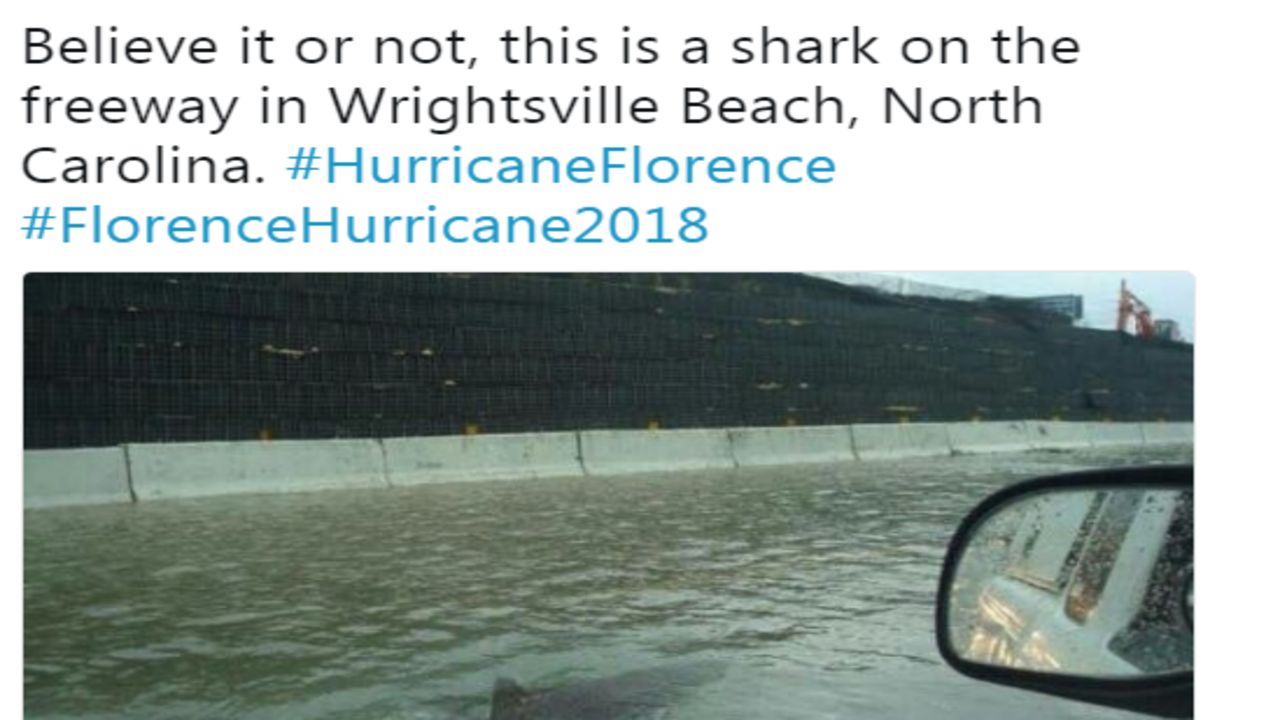CHARLOTTE, N.C. -- Along with the winds and rain, misinformation can be dangerous in a natural disaster.
RELATED:
- More than half a million North Carolinians without power
- FLORENCE: Webcams show what's happening on coast
- FEMA Rumor Control
Despite what you may see on twitter, sharks are not swimming by cars on the freeway.
FEMA created a rumor control page for Hurricane Florence. It's an official source people can go to, to vet rumors spreading online.
FEMA says it will update the site regularly and has already debunked several questions, like telling people on the coast to not use beach sand for sandbags and that all shelters and hotels have to allow service animals, but businesses and some shelters can turn your pet away.
At the same time, Facebook is expanding fact checking to photos and videos, using a mix of technology and a team of human fact checkers. This will flag images or videos making false claims, being used out of context, or altered in some way to the point of being completely fake.
There's a couple of easy things you can do make sure you're not sharing the next shark on the freeway. You can do a reverse image search, check Snopes.com or just make sure you're making decisions based on information from official sources.
Stay up to date on the clean-up and aftermath of Florence:
- Florence resources and helpful links
- How to begin the steps to recovery
- Residents return after Florence
- Like us on Facebook
- Watch Live
- Closings and delays
- Download the App



